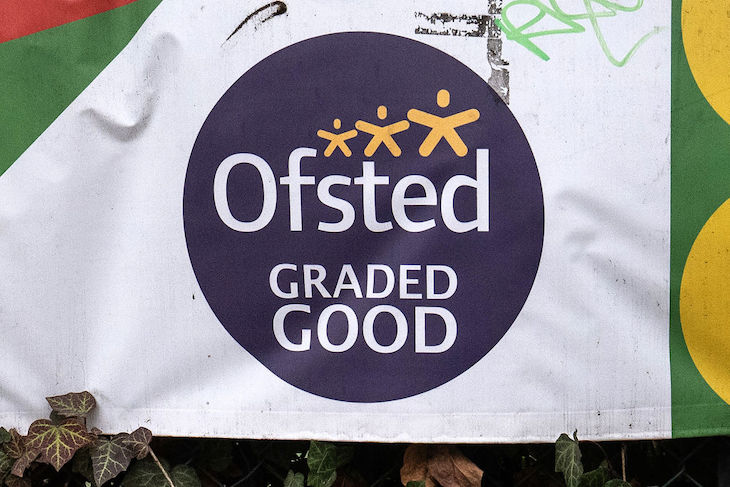The decision to scrap one or two-word Ofsted inspection grades for England’s schools is good news for teachers – but bad news for just about everyone else, not least parents and pupils.
Many school staff have never liked the labelling of schools as ‘Outstanding’, ‘Good’, ‘Requires Improvement’ and ‘Inadequate’. They say that it doesn’t give the full story and heaps pressure on staff during inspections. In one case last year, a head teacher took her own life after her school received an unflattering report. What happened to Ruth Perry was a terrible tragedy. But while some reform was no doubt necessary, getting rid of straightforward Ofsted summaries is not the answer.
Getting rid of straightforward Ofsted summaries is not the answer
Education Secretary Bridget Phillipson’s honeyed defence of the measure on Radio 4, where she said that parents were ‘capable of understanding a wider range of information, not just having everything boiled down into one word,’ is disingenuous. It’s not as if Ofsted assessments currently consist of a single laminated card bearing nothing more than the delphic words Outstanding, Good, Requires Improvement, or Inadequate. On the contrary: reports already mark schools specifically and separately on a range of categories. Even for a small school, these reports typically run for six or seven pages. This will continue. But removing the overall classification reduces, rather than widens, the information available to parents who might find an informed overall assessment useful.
Simple assessments, such as the number of stars or marks out of five given to a hotel, may not tell the whole story, but are invaluable to those seriously concerned at the quality of a service on offer. A buyer of wine who sees a one-star review has good reason to think twice, however much other information as to nose, flavour and so on is available that might change their mind. A concerned parent who sees that a school overall ‘requires improvement’ will be strongly inclined to hold the head teacher’s feet to the fire at an open day, and rightly so.
Put starkly, depriving parents of that initial steer and the accompanying incentive to ask awkward questions puts a great deal more power in the hands of the education establishment. Those running the school, and those in the bureaucracy behind it, will nearly always be in a much better position to obfuscate matters in a sea of education-speak, and persuade parents to gloss over what may be serious failings. Children’s educations could suffer as a result.
The government will also be comfortably aware that abolishing singe-phrase summaries may be useful politically to a number of predominantly Labour local authorities whose schools leave much to be desired. A jibe that a large percentage of the schools in an area are ranked overall as needing improvement, or plain ‘inadequate’, is likely to cut through devastatingly to voters, many of whom will be parents desperate to assure their children’s future and with not the remotest option of opting out by going private. For all Phillipson’s insistence that ‘accountability is non-negotiable’, cutting off this ability to make a political attack that is effective, short and to the point – and might actually force improvement – will make it a good deal easier to cover up embarrassingly deficient performance.
It’s clear that this government announcement amounts to another major concession to the education blob. Teaching unions, namely the National Education Union, are happy but are already pushing for more; the NEU’s Daniel Kebede reiterated his calls for Ofsted to be scrapped completely. Let’s hope that the government doesn’t listen. But don’t hold your breath.
Judgments must be made about schools, and must be made overall. Put bluntly, if it comes to a choice between promoting judgments which parents and others can use to drive standards up, and protecting teachers and others from perceived harm where those judgments are bad, the answer must be a brutal one: the interests of children in being properly educated must prevail. Phillipson herself talked this morning about the government’s ‘mission to break down barriers to opportunity.’ She is right about that. It’s just that she couldn’t be more wrong about how to do it.







Comments